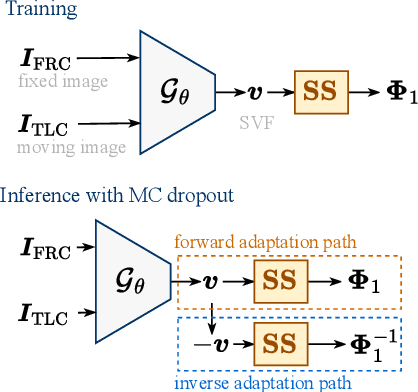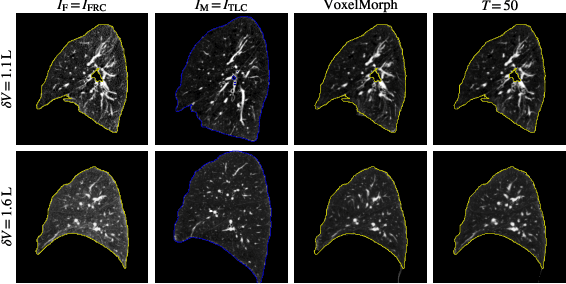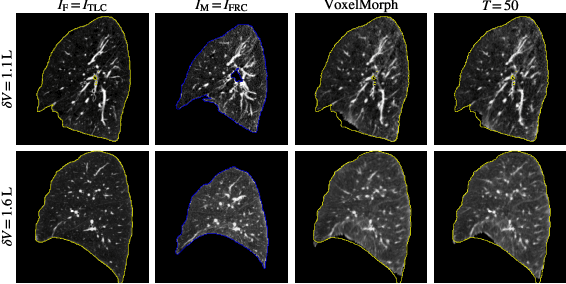Sandeep Bodduluri
Uncertainty-Aware Test-Time Adaptation for Inverse Consistent Diffeomorphic Lung Image Registration
Nov 12, 2024



Abstract:Diffeomorphic deformable image registration ensures smooth invertible transformations across inspiratory and expiratory chest CT scans. Yet, in practice, deep learning-based diffeomorphic methods struggle to capture large deformations between inspiratory and expiratory volumes, and therefore lack inverse consistency. Existing methods also fail to account for model uncertainty, which can be useful for improving performance. We propose an uncertainty-aware test-time adaptation framework for inverse consistent diffeomorphic lung registration. Our method uses Monte Carlo (MC) dropout to estimate spatial uncertainty that is used to improve model performance. We train and evaluate our method for inspiratory-to-expiratory CT registration on a large cohort of 675 subjects from the COPDGene study, achieving a higher Dice similarity coefficient (DSC) between the lung boundaries (0.966) compared to both VoxelMorph (0.953) and TransMorph (0.953). Our method demonstrates consistent improvements in the inverse registration direction as well with an overall DSC of 0.966, higher than VoxelMorph (0.958) and TransMorph (0.956). Paired t-tests indicate statistically significant improvements.
 Add to Chrome
Add to Chrome Add to Firefox
Add to Firefox Add to Edge
Add to Edge